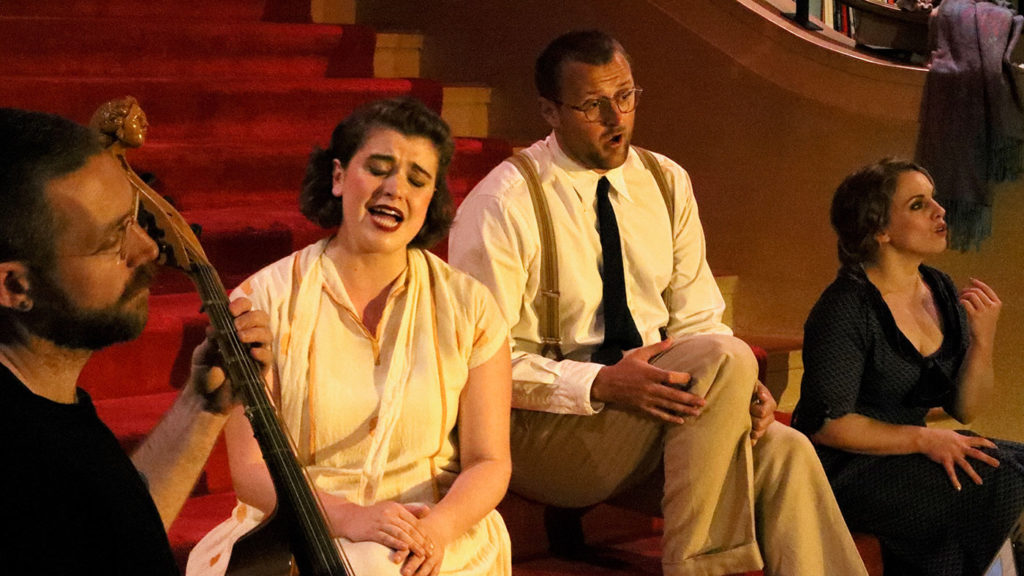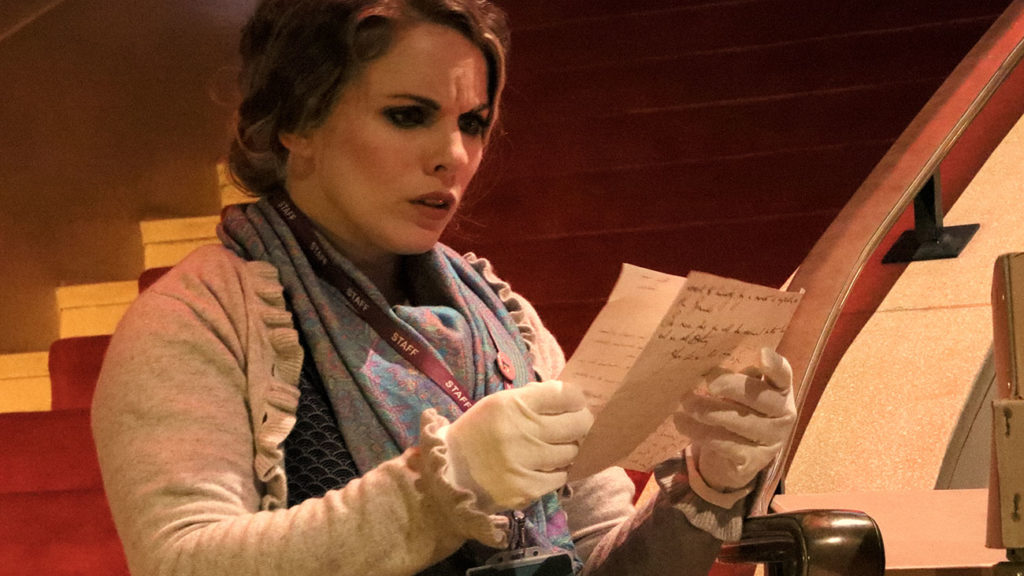An Opera on the Sexual Revolution
Feature
Composer Alex Mills reflects on his thought-provoking chamber opera Dear Marie Stopes which premiered at the Wellcome Collection in 2018.
Marie Stopes published her controversial sex manual, Married Love, in 1918, revolutionising how the world understood desire, sexuality and sexual health.
The Background
I came across the Wellcome Collection’s extensive Marie Stopes archive in 2016 after writing to Dr Lesley Hall, former senior archivist and sexology expert, seeking advice on a different project. I quickly realised I’d already come across it at the Wellcome Collection’s fascinating Institute of Sexology exhibition in 2014.
The archive itself is extraordinary and unique. It contains thousands of private, intimate letters written to Marie Stopes from members of the public in response to her landmark publications on sex, birth control and parenting in and around the 1920s. The first of these publications, Married Love, was a sex manual Stopes published in 1918 to educate men and women on the most intimate details of sex, sexual desire and contraception while firmly advocating sexual equality between men and women. It became a global sensation, revolutionising attitudes to sex around the world, and was controversial not only for its contents, but because it was written by a woman.
Reading the impassioned opinions and desperate situations described in the letters led me to think about what’s changed in our attitudes to sex over the last 100 years since Married Love was written. Thankfully, so much has changed. But there are still so many opinions and attitudes towards sex, sexuality, contraception and equality in the letters that are as explosive now as they were then. This fascinated me: a historical archive giving a unique snapshot of society’s sex life 100 years ago that has poignancy and relevance today. So, I decided, of course, to turn it into an opera – with the shrewd guidance of Dr Lesley Hall and librettist Jennifer Thorp.
The piece is a chamber opera for three singers, viola da gamba and cello, with a libretto constructed from fragments and extracts from the archive of letters. The premise of the piece is to give a voice to some of the thousands of people who wrote to Marie Stopes sharing their most intimate stories, opinions and experiences about sex and the challenges of birth control. We learn about attitudes and problems in sex lives from the past and question our own views on these issues today.

Photography taken from the premiere at Wellcome Collection by Claire Shovelton
Eugenicist or Humanitarian? Situating Stopes in Contemporary Opera
It’s hard to neatly reconcile Marie Stopes’ well-documented eugenicist views with her feminist and humanitarian achievements. In fact, I don’t think it’s possible. On the one hand, some of the views she expressed were deeply alarming. On the other, her achievements in sexual and public health were unique and revolutionary. Viewing her purely as a humanitarian hero is to ignore her troubling views, while condemning her as a eugenicist disregards the tens of thousands of women and men she genuinely helped. It’s a challenge that anyone seeking to explore her life or work comes up against, which I’ve experienced myself while working on Dear Marie Stopes.
When discussing this dilemma with the librettist for the opera, Jennifer Thorp, I was reminded that these debates exist around other powerful figures in the history of contraception, like Margaret Sanger who established what would become Planned Parenthood in the US. Like Stopes, she also held strong eugenicist, racist views. These are complicated women with confronting opinions, and you can’t airbrush that out of their legacy. (…)
The fabric of my opera is woven from the deeply personal stories and experiences contained in the letters, written to Stopes 100 years ago but with a striking poignancy and relevance to today’s audience. The aim of the piece is to share the very moving stories of these people who Stopes inspired to write to her, rather than put Stopes’ character on public trial.

Photography taken from the premiere at Wellcome Collection by Claire Shovelton
Why is Marie Stopes Played by a Man?
One of the most common questions I have been asked about Dear Marie Stopes is, ‘Why is Marie Stopes sung by a man?’ It’s a good question. And there are two main answers. The first is very practical.
The libretto is constructed from many different fragments of letters Marie Stopes received from the public in response to Married Love. The majority of these are from women but there are plenty of examples from men too. So, with a cast of three singers, I needed a good mix of female and male voices to play many different ‘characters’, as well as someone to sing the character of Marie Stopes. (…)
Having a countertenor allowed me to have a male voice (spoken word) on stage to deliver some of the letters written by men, as well as a very distinctive voice in a female register for when Marie Stopes appears that stands out from the other female voices in the piece.
The second reason for choosing a male to sing Marie Stopes is a more artistic decision. A significant amount of Marie Stopes’ book deals with the similarities, differences and relationships between men and women; gender stereotypes in sexual relationships and beyond; attitudes and beliefs about male sexuality versus female sexuality; women’s right to bodily freedom versus men’s sense of entitlement over the female body. In short: a complex and fascinating web of interrelating ideas about gender, sex and stereotypes.
While it might have been more ‘realistic’ to have all the female voices in the libretto sang by women, having a male presence sing a female role in the context of this piece suddenly lifts the lid on all these ideas, opening up new layers of interpretation.
Read the full blog entries on Alex Mills’ website.